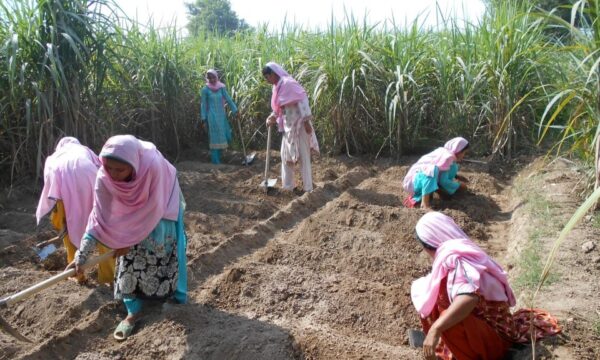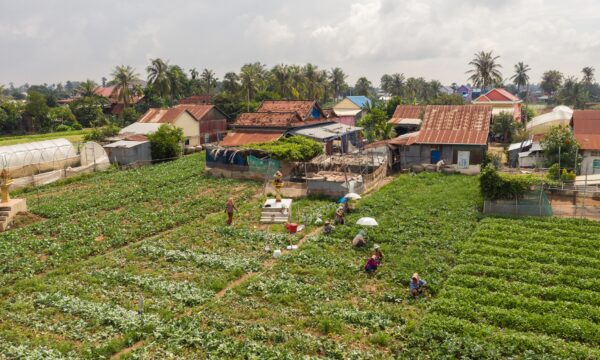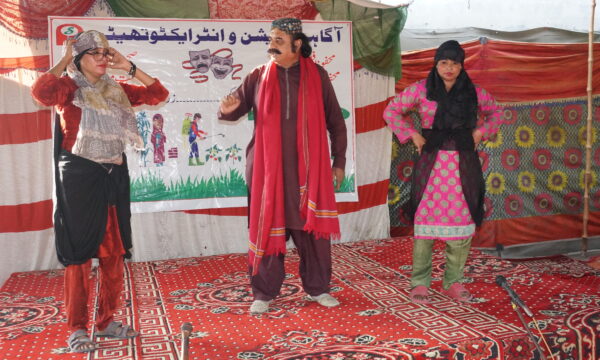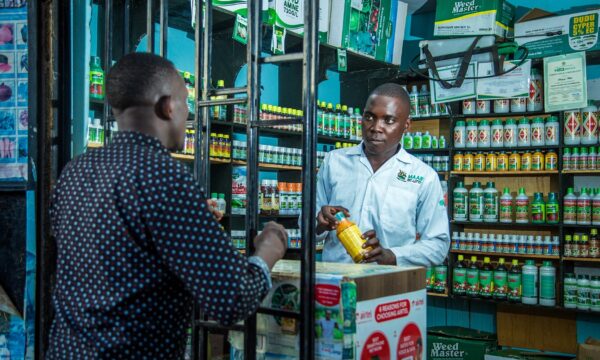
Pakistan’s agricultural sector is constantly struggling with the emergence of pests and diseases that pose a serious threat to the livelihoods of millions of farmers. CABI’s PlantwisePlus programme recently held a five-day Horizon Scanning workshop in Islamabad from April 29 to May 3, 2024.
The event was a testament to the power of collaboration. The Pakistan Agricultural Research Council (PARC) and the National Agricultural Research Centre (NARC) hosted the event in partnership with CABI. The Department of Plant Protection (DPP) played a crucial role in its capacity as the National Plant Protection Organisation (NPPO). Additionally, agriculture research and extension departments from all six provinces, including Punjab, Khyber Pakhtunkhwa, Sindh, Baluchistan, Gilgit Baltistan, Azad Jammu and Kashmir, and stakeholders, including four major Agriculture Universities, all came together for this significant event.
Their goal? To identify and prepare for potential threats to Pakistan’s agricultural productivity.
PlantwisePlus supports countries to effectively identify, prioritize and respond to pest threats

Dr. Muhammad Naeem Aslam, the PlantwisePlus country coordinator, delivered the opening remarks. He enthusiastically greeted the participants at this significant event and conveyed his gratitude for the support received from their institutions. He briefed the workshop participants about how PlantwisePlus will scale up in Pakistan over the coming years.
Dr. Imtiaz Hussain, Member of the Plant Sciences Division at PARC, highlighted the crucial importance of maintaining strong quarantine measures to safeguard Pakistan’s agriculture from the introduction of invasive species. Organising the list of invasive threats is an important first step in developing strategies to actively reduce these risks.
What is the Horizon Scanning Tool?
Dr. Allah Ditta Abid, Director General of the DPP NPPO, also participated in the workshop. He showed a strong interest in learning about the horizon scanning tool for prioritizing quarantine species. Dr. Abid concluded that this tool would benefit DPP officials in their work. Recognizing its value, he strongly encouraged his staff to familiarize themselves with it.
Dr. Marc Kenis, Head of Risk Analysis and Invasion Ecology at CABI Switzerland, provided a comprehensive overview of the CABI Horizon Scanning Tool. This tool is specifically designed to detect invasive alien species that have the potential to harm agriculture and biodiversity. He presented the various CABI Compendium channels, offering a wealth of information on key pests, crops, and countries, empowering participants to make informed decisions in their work.

Horizon scanning – embrace a proactive approach
Horizon scanning plays a vital role in combating the emergence of pests and diseases. Through diligent monitoring and analysis of global trends, researchers and policymakers can proactively anticipate and address potential threats before they escalate. By taking this active approach, we can develop specific strategies and put preventive measures in place to protect the food security and livelihoods of farming communities.
Dr. Kenis is currently leading the horizon scanning programme with support from Mr. Abdul Rehman and the PlantwisePlus team in Pakistan. Dr. Kenis shared his knowledge and insights with the participants, providing valuable guidance and assistance during the program’s prioritisation exercises.
Prioritizing pests for Pakistan
Before the workshop, Dr. Kenis initiated the selection of species for assessment and led discussions on finalising the selection process. He presented the prioritisation method by utilising express pest risk assessments, engaging in discussions, and providing initial demonstrations.
The training participants, with their expertise, were divided into four groups. They were then assigned a specific list of pests to conduct short assessments of Pest Risk Analysis. This was done to develop the list of quarantine pests for Pakistan.

Break-out groups, focusing on entomology and plant pathology, actively evaluated the species using a comprehensive set of criteria. The local experts thoroughly discussed and unanimously agreed upon these criteria. The results have been presented and discussed, and the next steps include consolidating the prioritisation exercise, publishing the findings, and creating a risk register.
By taking this comprehensive and collaborative approach, we can ensure that the resulting action plan will be specifically designed to address the unique challenges faced by Pakistan’s agricultural sector.
Participants at the workshop actively participated in engaging activities. This equipped them with the knowledge and tools needed to assess emerging pests and diseases effectively. Group discussions and presentations contributed to a dynamic learning environment, allowing collaboration to thrive.
Nurturing sustainable agriculture

Horizon Scanning workshops like this play a vital role in the PlantwisePlus programme. It promotes sustainable agriculture and enhances food security in lower-middle-income countries. The programme actively contributes to the United Nations Sustainable Development Goals by supporting the development of strong early warning systems and enhancing the capacity of local stakeholders. It specifically focuses on Goal 2: Zero Hunger and Goal 15: Life on Land.
The Horizon Scanning workshop in Islamabad marks a significant achievement in Pakistan’s ongoing efforts to protect its agricultural sector. This initiative aims to empower agricultural professionals in Pakistan through partnerships, knowledge sharing, and capacity building. By doing so, they will be better equipped to anticipate and respond to emerging pests and diseases. Thus, ultimately ensuring a more resilient and sustainable future for the country’s farming communities.
Find out more
Pest risk training to help detect Pakistan’s potential invaders
CABI’s range of invasive species knowledge resources and tools has been developed for various users, such as environmental managers, researchers, farmers, plant protection officers, policymakers, and more.
CABI Compendium – includes the world’s most comprehensive collection of datasheets on crop pests and invasive species
Horizon Scanning Tool – designed to identify and categorise new pest threats to a country or region
Pest Risk Analysis Tool – provides a framework for assessing the plant health risk associated with a new plant commodity pathway, individual pest, or organism proposed for import and selecting risk management measures to support safe trade.
PlantwisePlus gratefully acknowledges the financial support of the Directorate-General for International Cooperation (DGIS), Netherlands; European Commission Directorate General for International Partnerships (INTPA, EU); the Foreign, Commonwealth & Development Office (FCDO), United Kingdom; and the Swiss Agency for Development and Cooperation (SDC).
All images in this article are © CABI
Related News & Blogs
Pest preparedness in action: Preventing the coconut hispine beetle invasion in Bangladesh
The coconut hispine beetle (Brontispa longissima) is a destructive pest of palms, including coconut palms. It is a major pest in Southeast Asia, the Pacific and parts of South Asia. For several years, Bangladesh has recognized the potential threat that…
2 June 2025




